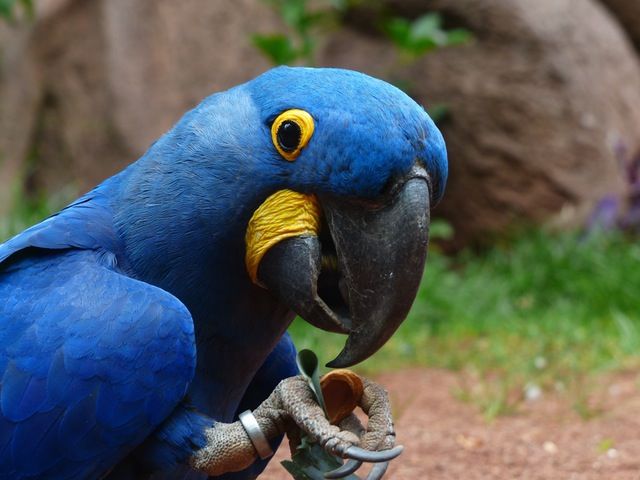Illegal wildlife trade is booming online — but major forces in the private and public sector are banding together to fight this lucrative and devastating industry.
Big tech players joined government organizations and NGOs Monday in Johannesburg, South Africa to tackle wildlife crime at the CoP17 meeting of the Convention on International Trade in Endangered Species (CITES). Attendants included eBay, China’s Tencent, the International Fund for Animal Welfare (IFAW), TRAFFIC, the Public Prosecution Office of Kenya and the Chinese CITES Management Authority.
Wildlife cybercrime is widespread
Cybercrime is difficult to regulate and track, but a six-week investigation by IFAW examining 280 online marketplaces in 16 countries during 2014 turned up 33,006 endangered living wildlife — as well as wildlife parts and products — being sold via 9,482 online advertisements. All of this could generate over $10 million — yet it represents a small fraction of $19-billion-a-year wildlife trading industry.
“Investigations, operations and resulting successful prosecutions are ramping up in many countries,” Global Wildlife Cybercrime Project Lead Tania McCrea-Steele told Lady Freethinker.
Yet there is a long way to go in stopping this epidemic.

Reptiles are commonly traded online.
Tracking and stopping wildlife cybercrime is challenging
While collaborative efforts between online tech companies and activist groups have certainly made progress, McCrea-Steele listed several challenges of controlling illegal wildlife trading:
- Many people enforcing the laws lack either the resource or the knowledge to properly investigate and pursue wildlife cybercrime.
- Online tech companies lack strong policies against wildlife cybercrime and fail to explicitly ban it.
- Banning wildlife cybercrime isn’t enough – much of the activity is relatively hidden, which means companies have to be extra conscious, constantly monitoring for illegal activities.
- Many laws are outdated and don’t take large internet markets into account.
“It’s important that governments review these laws and ensure they empower enforcers to investigate and prosecute wildlife cybercriminals,” she said.
CITES has some solutions to reduce illegal wildlife trading online
A side event, “Taking a Byte Out of Wildlife Cybercrime” specifically tackled many of these pressing issues.
The meeting promoted a standardized wildlife policy framework, which would specifically deal with the second challenge brought up by McCrea-Steele.
This standardized wildlife policy, already adopted by seven companies including eBay and Tencent, aims to provide e-commerce and social media sites susceptible to online wildlife trading with a clear, standard guidelines to prohibit wildlife and wildlife products.
Apart from advocating for this policy framework, the speakers representing these diverse groups encouraged countries to follow the Decision on Combatting Wildlife Cybercrime laid out by CITES.
This Decision had many recommendations to reduce illegal online trading, which included revising local laws and measures and developing best practices to create workshops and training.

Exotic birds like parrots are often captured and sold illegally online.
IFAW also has a number of strategies to reduce illegal wildlife trading online.
“IFAW works with online tech companies to ensure they have robust policies banning illegal wildlife trade that are effectively enforced,” said McCrea-Steele. “In addition, we enhance enforcement capacity by lobbying for government support while we provide training to improve enforcers knowledge of the subject.”
They’ve also provided over 1,000 files to help enforcers track down traders, and consult with governments to improve and strengthen wildlife cybercrime laws.
In many ways, the efforts of such collaborations have been growing and are starting to pay off.
McCrea-Steele cited numerous instances tech industries, NGOs, and governments have come together in the past. As just one example, the eBay ban on the sale of ivory in 2009 has been relatively successful – IFAW’s report found that between 2008 and 2014, ivory advertisements on eBay dropped from 134 to 8 in Canada and from 192 to 7 in France.
“There is already a lot of collaboration taking place,” said McCrea-Steele. “However, we need to see governments across the world demonstrating a willingness to tackle this issue which is why we are calling on parties to support the combatting wildlife cybercrime Decision at CITES.”






